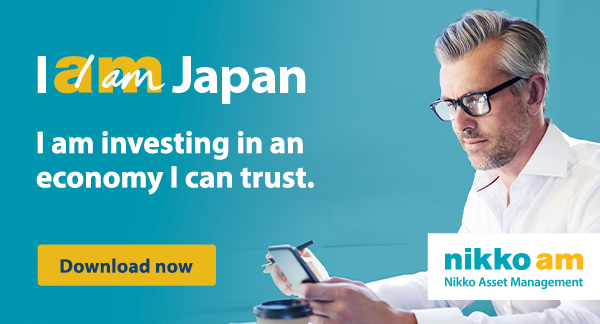Insights
Investment Insights by our experts and thought leaders
Harnessing Change-Monthly Insights: Asian Equity (June 2025)
by — 14 July, 2025
According to Wall Street lore, investors should “sell in May and go away”, but June's rally once again reduces the credence of this strategy. Still, the outlook remains uncertain despite improvements
in terms of trade policy tensions and ceasefires.
On the ground in Asia-Monthly Insights: Asian Fixed Income (June 2025)
by — 11 July, 2025
While credit fundamentals and decent demand-supply technicals are supportive, we are wary of trade and geopolitical re-escalation risks. We are therefore inclined to take a more cautious and defensive
approach over the near term.
New Zealand Equity Monthly (June 2025)
by , — 08 July, 2025
In June, New Zealand’s equity market performance largely reflected ongoing weakness in the country’s economy, with defensive stocks acting as the main drivers of performance.
New Zealand Fixed Income Monthly (June 2025)
by , — 07 July, 2025
With uncertainty over tariffs, geopolitical disruption and the paths taken by central banks continuing to impact global markets, it may be instructive to look back at the RBNZ’s last monetary policy
decision as we try to determine the future direction of interest rates.
Navigating Japan Equities: Monthly Insights From Tokyo (July 2025)
by , — 04 July, 2025
This month we assess how Japan losing its place as the world's largest creditor in fact underscores the country's transformation over the years; we also discuss the recent crude oil market disruptions
from a Japanese market perspective.
Sharia bonds: an overlooked diversification opportunity?
by , — 03 July, 2025
Sharia-compliant bonds, or to give them their official name, “sukuk”, are often dismissed as faith-based instruments with limited appeal outside of Muslim-majority markets. However, this misses the
opportunity they present for global fixed income investors seeking diversification, resilience, and sustainability.
With slowing growth and an ongoing trade war to handle, China appears to be in a crisis management mode. However, the country is at an inflection point where major structural shifts are occurring as
it strives to climb up the technological value chain to achieve self-sufficiency via innovation and resourcefulness.
Global Investment Committee’s outlook: narrowing growth differentials
by , — 27 June, 2025
The GIC assesses that the probability of slower yet positive growth in the US has increased. The GIC anticipates a narrower growth gap between the US and other developed markets, with selective
diversification into European and Chinese equities potentially paying off. The GIC believes that the risk premium offered by Japanese equities is now competitive with that of the US, although
trade-related uncertainty is expected to linger.
Balancing Act Monthly Insights: Global Multi-Asset (June 2025)
by — 26 June, 2025
US exceptionalism has faded from view recently, supporting an exodus from US assets. However, our stance remains that the US is core to our investment thesis, allowing us to remain part of the secular
growth trend in technology innovation not found elsewhere in the world.
On the ground in Asia-Monthly Insights: Asian Fixed Income (May 2025)
by — 23 June, 2025
We continue to believe that Asia's local government bonds are positioned to perform decently, supported by accommodative central banks amid an environment of benign inflation and moderating growth.
FOMC: projections highlight heightened uncertainty in rate outlook
by , — 20 June, 2025
The Fed maintained interest rates at its June meeting, signalling a slightly more positive economic outlook. Despite easing of some risks, uncertainties remain elevated, with inflation still a key
concern. FOMC members' varied rate projections reflect heightened uncertainty in the economic outlook.
Strategic shift in Japanese equities: uncovering takeover triggers
by , — 20 June, 2025
Japan's corporate governance landscape is continuing to evolve, highlighted by increases in shareholder activism and unsolicited takeover offers. The reforms initiated over the past decade have led to
a more open corporate climate, and there is a shift towards a more competitive and value-driven market environment in Japan.
New Zealand Equity Monthly (May 2025)
by , — 11 June, 2025
New Zealand’s climate-related disclosures regime came into effect for reporting periods beginning on or after 1 January 2023 and the first rounds of annual reports were released in 2024. Now that the second year of reporting is underway, we share some of the benefits and challenges we have found in the reporting process.
New Zealand Fixed Income Monthly (May 2025)
by , — 10 June, 2025
The RBNZ's interest rate cut in May was viewed as a hawkish reduction, with the central bank seen moving closer to the point at which it will consider pausing the cycle to observe the benefits the
current monetary policy settings can bring to the economy.
Harnessing Change-Monthly Insights: Asian Equity (May 2025)
by — 10 June, 2025
Markets, while volatile, have continued to recover, and we are now seeing an easing of trade tensions. However, in these uncertain times, one thing remains clear—uncertainty itself. The situation
remains fluid, and against such a background we expect Chinese policy support to stimulate consumption and business activities.
Japan plays the long game to keep structural recovery intact
by , — 09 June, 2025
Japanese equities have not been immune to tariff worries. However, it is worth remembering that Japan is playing the long game: the country is undergoing structural reflation driven by factors
unlikely to be reversed by market volatility or bad news on US trade.
Navigating Japan Equities: Monthly Insights From Tokyo (June 2025)
by , — 06 June, 2025
We discuss how growing calls to reduce Japan's consumption tax rate provide a chance to focus on how consumption can be stimulated, potentially triggering a secular change in spending behaviour; we
also assess the recent surge in super-long JGB yields and its possible implications for monetary and fiscal policy.
The reckoning of ESG: turning the backlash into opportunity
by , — 04 June, 2025
The backlash against ESG should be seen not as a setback but as a catalyst for progress. By embracing Rational Sustainability and focusing on financial materiality, asset managers can enhance their
investment strategies, fulfil their fiduciary duties, and meet the evolving expectations of their clients.
Balancing Act Monthly Insights: Global Multi-Asset (May 2025)
by — 29 May, 2025
In this month's Balancing Act we review Q1 corporate earnings, which have been more resilient than expected; from a defensive standpoint we also discuss our cautious view on gold.
On the ground in Asia-Monthly Insights: Asian Fixed Income (April 2025)
by — 23 May, 2025
Against a more challenging but still benign macroeconomic backdrop, we expect Asian corporate and bank credit fundamentals to stay resilient, aside from a few sectors and specific credits which may be
affected by tariff threats or geopolitical dynamics.
Harnessing Change-Monthly Insights: Asian Equity (April 2025)
by — 21 May, 2025
We can expect more aggressive policy support from Chinese authorities over the next several months for consumption and business activities, prompted by the still uncertain global trade situation.
Despite the ongoing volatility and uncertainty surrounding US-China tariff policies, there are encouraging signs that the situation may improve.
We are all Bayesians now: why the US bond market is pivotal
by , — 20 May, 2025
Moody's downgrade of the US offers a chance to assess the relationship between the US administration and the bond market and examine the implications of persistent budget deficits, market reactions,
trade tensions and policy decisions.
Active investing: insights from nearly 40 years of experience
by , — 19 May, 2025
Our belief is that there are three key ingredients of success that active managers should deliver to make outperformance more likely: culture, philosophical path and process design.
Global Equity Quarterly (Q1 2025)
by — 16 May, 2025
We firmly believe that markets remain inefficient, and the last few months are testament to that. Hence we face today's uncertainty level headed, attentive to where risks lie while also inquisitive
about the potential opportunities.
Balancing Act: Global Multi-Asset Quarterly (Q1 2025)
by — 15 May, 2025
Speculation over the actions of the US administration had a major impact on asset markets throughout the January-March quarter, with volatility dominating towards the end. We trimmed our overweight
score in growth assets during the quarter, while we kept our view of defensive assets marginally positive.






























